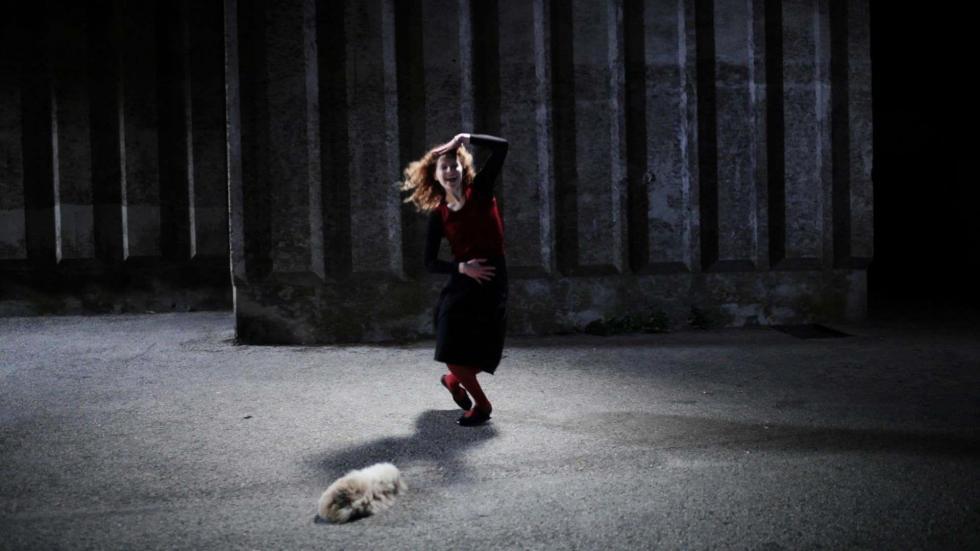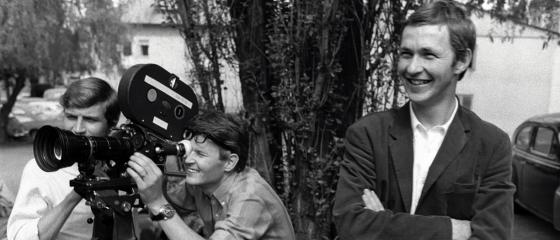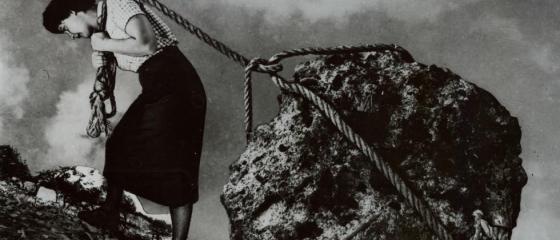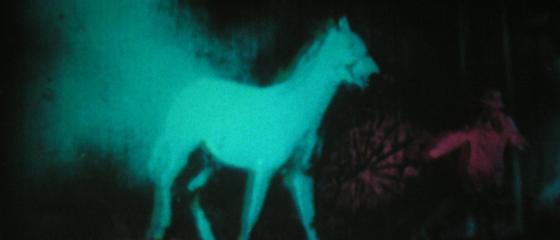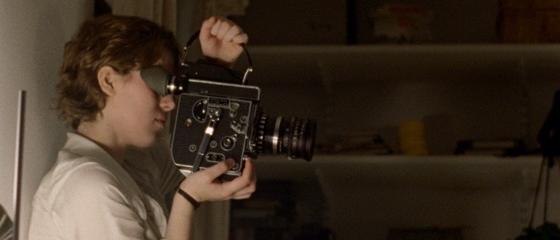It is clear that 2015 was the year of Vecchiali. In between the recent premiere of the dazzling Nuits blanches sur la jetée, as well as the DVD release of his films and then the extensive retrospective by the Seville European Film Festival dedicated to his trajectory, assure us that we are clearly looking at one of the best-kept secrets (and antidotes) of French cinema, now reintroduced.
Nuits blanches sur la jetée gives the impression that the novel on which it is inspired, The White Nights, goes perfectly with its universe. In his case, as in Dostoyevsky's, there is a tendency towards monologue, the idea that each character must tell his own story…
I've seen both Bresson's and Visconti's films shot by shot, and I love them except for one thing: I think Mastroianni cries too much in Visconti's film. I know Dostoyevsky's work well, but it happens that I've never read this novel. I finally read it in a double edition, in which it came together with Memoirs from the Underground. The confrontation of both gave me the following idea: the character is masochistic, there is a chance that the female character does not exist. When I adapted it, I followed this concept and told myself there was no need for it to be too apparent, for it to be guessed at. It's a bit like Tom Thumb's stones: there's a moment when she leaves wrapped in light, when only her hands are in the field and the male character makes her enter...
He could be perceived as a dream of hers: sometimes he is in darkness, while she is in the light.
From my point of view, when an artist creates a creature, sometimes that creature reveals itself. The other Tom Thumb's stone is when he suddently loses it. I made that shot completely theoretical, thing that I never do, a dolly in. It is an unnatural shot, it is there to say, 'Beware, this is not the neo-naturalism of the present, open your eyes, open your ears, because something else is going to happen'. A bit like the announcements in the circus.
There is a risk with a film like this: the viewer will end up not hearing any more. How can you listen to the dialogues for an hour and a half?
I asked my actors to do one very important thing: to see each other first, where they wanted to (they chose the L'Ourcq channel), so that they could learn the text. I warned them that there would only be one take. For me, the first take is innocence, from the second on, the actor begins to reason about his work and to do what I hate the most: psychology. I told them: if there is a sound nuance, integrate it into your dialogue. Hence Astrid Adverbe's reply: "Is it your plane? Is it your boat? And there the ship passes behind them... I gave them only indications of rhythm, of pause, of silence, as if it were a musical score. It's almost like a song without music. It seems to me that there you can listen, understand and participate.
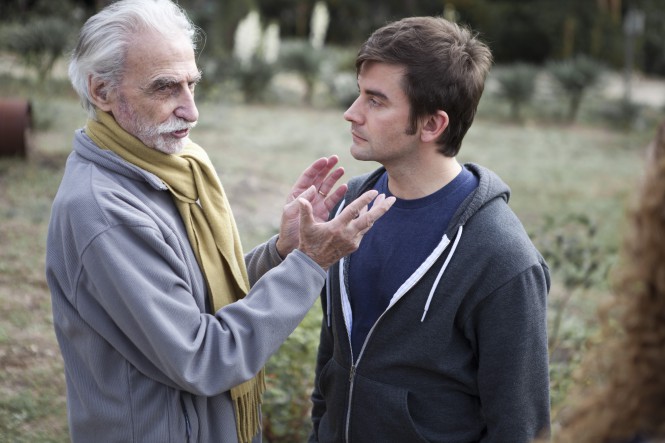
However, there is a preparation before the shooting…
No, because they worked in a flat way. I told them: "Above all, learn only the words and never the intonation". On the other hand, during the shooting, I was often a spectator, which is very rare for a director. Sometimes I held back laughter, sometimes I held back tears. The first night I was so moved. The water, the splashes, the faces, and when Pascal Cervo says he cried once over a memory: my eyes filled with tears.
Who do you think embodies this 'neo-naturalism' you're cursing?
All of French cinema, because you can't understand a word people are saying. I think it's totally insulting to the viewer.
There is often a somewhat binary opposition between the body and the words: if the body speaks, the words are in recession.
Body films? But why don't they make documentaries, why are there dialogues?
Let's go back to Nuits blanches sur la jetée. Bresson's version was a very Bressonian film. Let's say, 50% Dostoyevsky and 50% Vecchiali…
The nicest compliment I've ever received came from a writer's scholar, who said: "I finally see a loyal adaptation of Dostoyevsky". A very dear friend told me the same thing, I was told five or six times, that it was the most accurate adaptation and that the other directors were doing their work without actually finding Dostoyevsky.
Have you seen James Gray's Two Lovers?
Unfortunately, it's not that I don't like that film, it's that I hate it. There are two betrayals. First, Dostoyevsky is not mentioned in the credits. And then the fact that he completely reworked the novel by putting those two women... There's never a chance, let's say like in my film Femmes, Femmes that those two women will finally be just one. In my film we can say: Hélène is no longer in the picture, so Sonia is going to do everything she can no longer do. But that's not a compulsory reading at all. In Two Lovers this reading doesn't exist. In general, I don't like what James Gray does for a very simple reason: there is a unique light throughout the film, ochre in tone, hypermodern, hyper in. Overall, it's the most classic format of contemporary American cinema: the systematic reverse shot. This has sprung up in French cinema: someone speaks, he is filmed. I don't understand why they make films like this, for me it's television. It is what television demands: to put the camera in front of the speaker. I have done a lot of television and I was told this many times, I always refused. I am not saying that the reverse shot should be forbidden, but reverse shot means a confrontation.
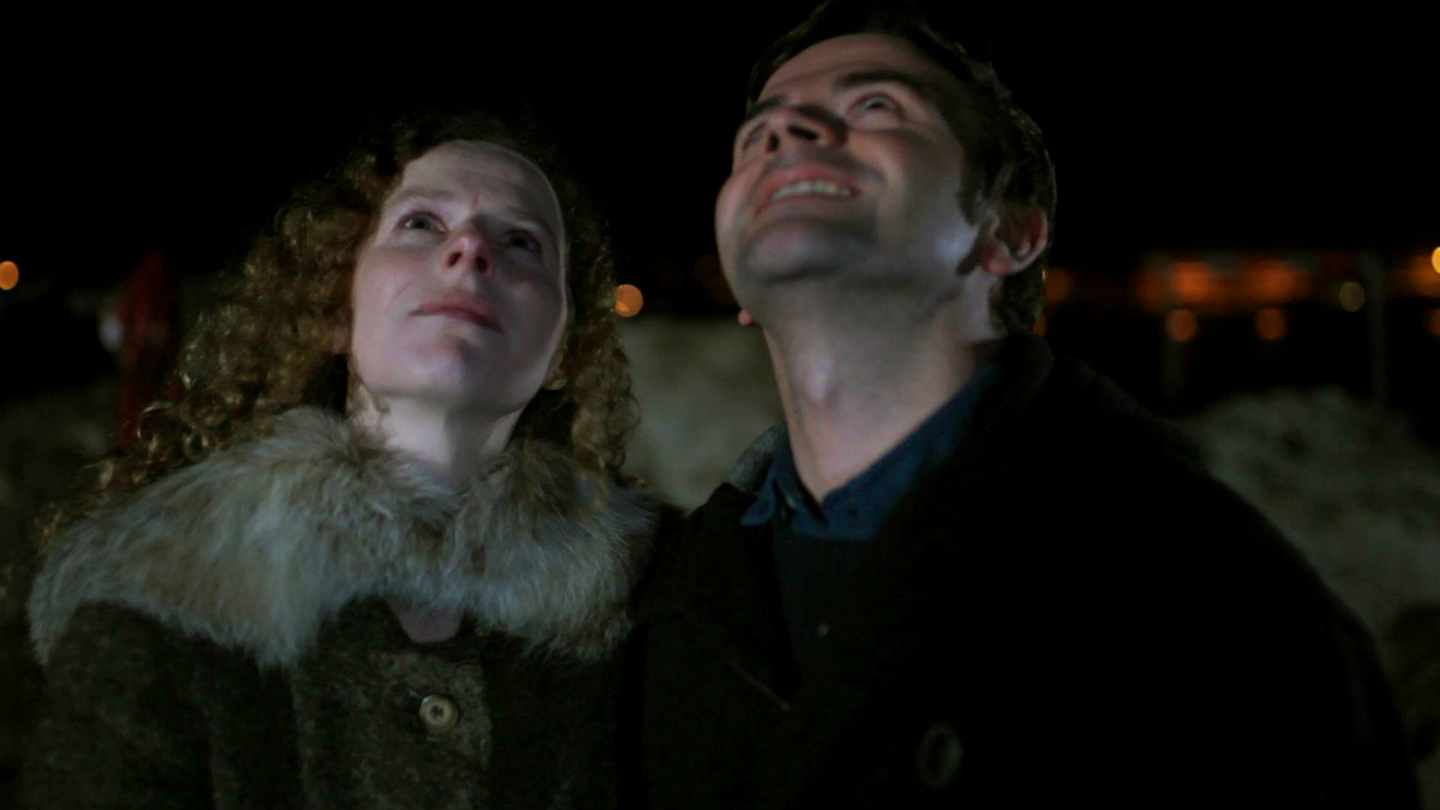
On the other hand, Nuits blanches sur la jetée can be seen as a rather theoretical film on this very question: how to get out of the shot reverse shot? It's a trap, there are two characters, then you say to yourself: here there will be a reverse shot. Yet, you find many solutions to escape from it...
Indeed, there are four reverse shots in the film.
When you talk about James Gray, you get the feeling that what you don't like is the homogeneity…
He has uttered the word he expected. Homogeneity is the opposite of life. Life is heterogeneous by definition. There is nothing that is homogeneous in life: feeling, appearance... Everything that is alive is heterogeneous, and in my films I put all my energy into working towards heterogeneity.
In fact, this is the first thing that strikes us about your films: they're so welcoming. In the sense that they embrace all that they can embrace, all the heterogeneity of the world. In Nuits blanches..., for example, there are those daytime scenes filmed with the iPhone that contrast with the nighttime scenes.
The day scenes were filmed with an iPhone and the night scenes in 5D, with three 65mm lenses. There's a technical reason: it's night, you have to open it, it's not easy without a lens, it would have been grainy, pixelated, which is disrespectful to the viewer.
Are you happy with the performance of the iPhone?
I love the iPhone, it was my operator who told me about it. He said: I promise you Paul, it's made for you. I've made a film with the iPhone, Faux accords. I was completely amazed. I abandoned the 35mm a long time ago.
Why is the iPhone made for you?
That's what my operator told me, that I'm someone who' s looking out for. That's how I define myself. In my work, the same film is never shown twice. After the great success of Rosa la rose, I was offered more than forty scripts with prostitutes, I told them: that's what I just did, thank you. However, there was money involved, actresses that I won't mention. Don't think it's out of purity, I simply can't retrace my steps. I'd get bored and, above all, I make films for fun.
You referred earlier to James Gray's ochre, golden image: do you think that cinema has become too efficient, too flat?
Let's say that's the problem, it's the image, the cinema that gives an image of itself. Just like certain actresses give an image of themselves and you hear them perform, speak. I think that this is a tremendous disrespect in relation to the character; not in relation to the spectator, who often likes that.
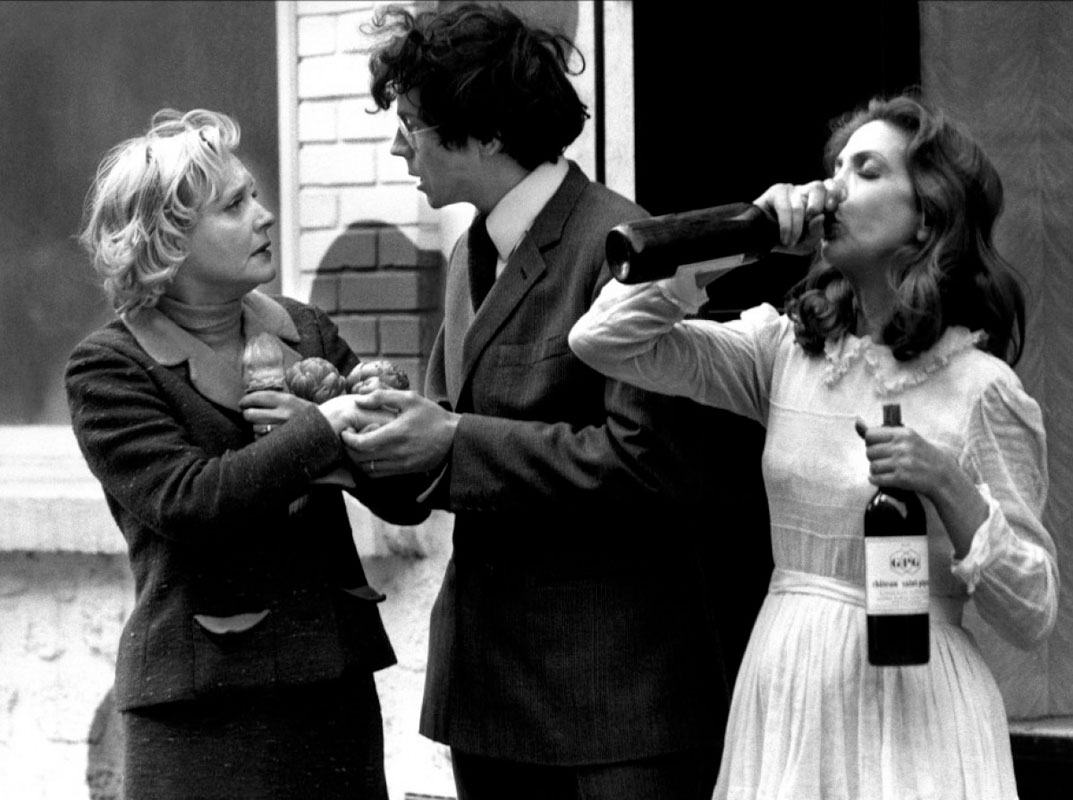
At the same time, Femmes, Femmes began with this quote: "To live in the truth you have to play a comedy". There is a truth in the mask…
For me, performing a comedy is something else, the opposite of 'working at the table'. In the theatre, everyone stands around a table and discusses the psychology of the characters. I don't do that. I have had incredibly violent conflicts with the actors. I'm not interested in having an actress explain to the audience what she has understood of the character. You must remain psychologically innocent. For me, in the theatre, the feeling is in the legs. It's when you move: if you go fast, it has a meaning; if you go slow, it has another meaning. Feelings can be communicated by the legs, not by the head or by psychology. That explains my relationship with cinema, because it's the same thing.
How do you find your actors?
I write for people. I make a film called C'est l'amour with Astrid Adverbe, Pascal Cervo and others who are still little known. I make a pentalogy at home, I didn't care if the films were not released. I made my films at home with my own money and I didn't owe anything to anyone, I was calm. I came across these Nuits blanches... who questioned everything and then I found Thomas Ordonneau (who runs the Shellac production and distribution company), an exceptional man who fell in love with my work.
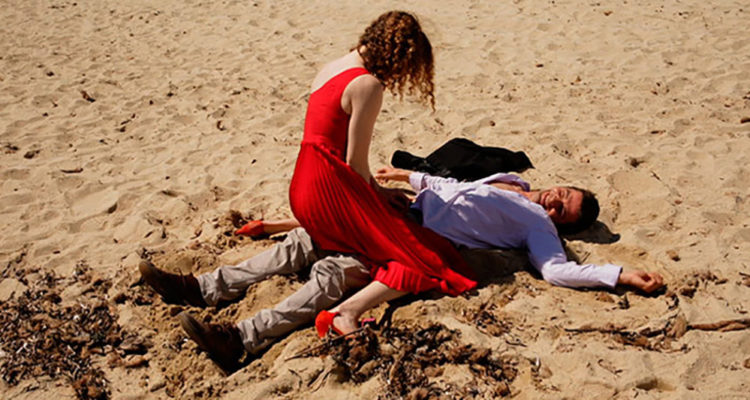
Before we started, you alluded to the reception of your last film, saying that you can't stand positive reviews that are poorly justified...
Yes, when one has the impression that the critic projects himself in the film and that he puts himself in the director's place. Why not: it's fun, even touching, it's like being asked for your daughter's hand.
At the same time, the best reviews are often beautiful portraits of those who write them.
The best reviews are those that speak about the film with precise arguments, which are exactly in my line and at the same time speak about those who write them. They are therefore both in the same movement. I remember that at the exit of a screening of Corps à cœur there was a couple crying, then another couple, and a woman. They went out for a drink after the screening, I followed them, and what made me really happy is that they never mentioned the film, they only talked about themselves. For me it's the most beautiful of rewards. The film is a way for people to communicate, you offer them a plot of land and they build their house. That's what I like best.
Is this still the case in an era when cinema is a fetish, as it is today…
I have both fetishization (filmmaking) and life. In Nuits blanches... I quote Madame de... (Ophüls), and in Retour à Mayerling there are constant tributes to The Ghost and Mrs. Muir (Mankiewicz), to Heaven Can Wait (Lubitsch)... In the end I always quote my influences, except when I do it unconsciously. I think that age does that: cinematic memory is so... more than present, impregnated, that it makes you want to restore it in order to free yourself a little, to get rid of memory.
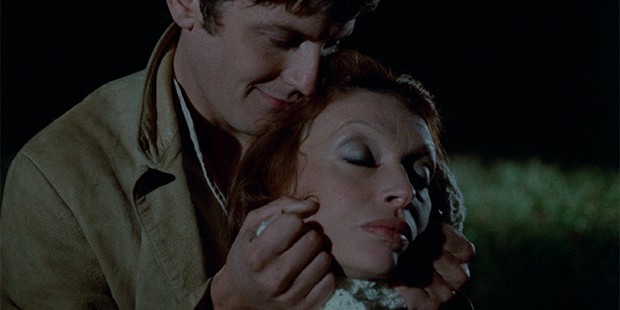
Which is more compelling: memories of life or memories of the movies?
Certainly, the memories of life. But since I'm a film buff, they're often linked. In fact, many of my films are inspired by my life. Not the last one, but Corps à cœur, yes, a lot; Once More, a lot. L'Étrangleur is a little different: I spent fifteen nights walking around the suburbs of Paris in a receptive state, and when I came back I wrote without knowing what and re-read it, telling myself there wasn't much to do. It was more like a poem about the night.
You often talk about feelings when you talk about your films. Who do you think are the sentimental filmmakers?
Grémillon, Ophüls with more distance, Carné, of course. Among the recent ones, in the Americans, nothing. I don't like American cinema at all right now, I find Middle Eastern cinema more interesting. In French cinema, lately Toi, moi, les autres by Audrey Estrougo is a lively film between On connaît la chanson by Resnais and Une chambre en ville by Demy. There are songs in the repertory, and it's the story of a woman whose son is in prison, played by Leïla Bekhti (that's an actress, a real one). The music ranges from almost classical to hip hop. I consider this film to be a masterpiece. Otherwise, there's L'Equipier by Philippe Lioret. Although what matters to me is the film's writing, and in that respect it's a little loose.
Meaning...?
The film must not be an accumulation of shots, everything must lead to an aim. Film writing is the consequence of taking a great risk in directing. The decision to make a long shot because there is a filmic need to do so is related to the feeling, this mixture of technique and emotion that makes the finished work not of the same nature as the elements that make it up. I have another image: an interesting film is like a river coming out of a mountain (the script), which goes to the sea (the viewer; the more vigorous it is, the more crap it carries. In short, we can talk about heterogeneity, it's more accurate. There are masterpieces full of impurities.
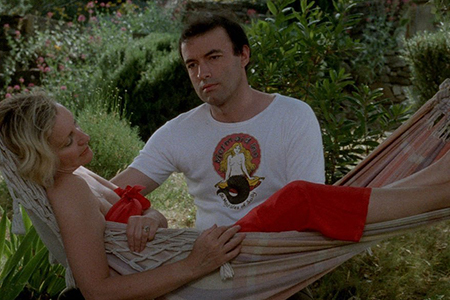
When talking about impurity, in Corps à c?ur any other filmmaker would have focused on the two protagonists, but instead the film is continually infested by a tribe of secondary characters…
It's the old chorus, but with the ability to laugh at oneself. I can't live without that ability.
And yet you are still a top filmmaker.
Yes, but with irony. When Paulette Bouvet turns around and asks, "Do you hear that fuss?", there's a sought-after gap, I know it's going to clash.
The one thing you have in common with Jean Grémillon is to perceive passion as an adventure to be experienced to the very end. For example, the idea of a sick character who is going to go to the bottom of his illness, as in Le Ciel est à vous. You go to the bottom of this madness which is not really mad, because it makes you completely lucid.
I can't say any more than I just told you. In Le Ciel est à vous there is a typical example of what I call the dialectic. When Vanel is waiting for his wife, he is in all his states, he doesn't know if she is dead, and the film rehabilitates him. He's there, he hears the noises, the crowd arrives, we feel that he's going to be lynched and then he's told that his wife has returned. That's the top, that's the dialectic, that's the origin of the name of my company, Dialectik.
There is a mockery about feelings in your films. Passion is, perhaps, a way of ignoring the ridicule…
Surgère asks Pierrot: "Are you happy?", and he replies: "Happiness is derisory". The character of Michelle who plays Surgère is a character who gives herself up and regrets having given herself up. She refuses for very obscure reasons, we don't know why (is she really sick?). She tells him: "I invite you to dinner, but not to sleep with me", is the key phrase of their relationship. The reasons that motivate her to act are not clear and for me that is essential. I'm happy when the film is open. I don't like it when the viewer leaves the room and forgets about the film. When I watched John Ford's 7 Women, the film lived with me for months, and when it was gone, I watched it again.
However, when you see the film you think of melodrama: Pierrot embodies passion in what is most intransigent.
Yes, but in the melodrama people suffer their fate; you just have to see Griffith's The Two Little Orphans. When they are totally in control of their destiny, tragedy strikes.
We could say that what they are going to suffer is controlled and chosen by them.
Exactly. That's why I insist on saying it's not a melodrama.
For you, passion seems to be an experience from the edges. And for you, the edges are a positive thing.
Yes, there's something of that in many of my films. The margins are a liberation because society is obnoxious. I prefer it kind, but it's obnoxious. I made my First Communion when I was ten and when I came back I told my mother: "Mom, I did this to please you, from now on don't ever talk to me about God, power or money again". And she said: "But you are an anarchist?" I didn't know the word at the time. I remain the same.
And passion, is it a form of anarchy?
Yes, let's say it's the rejection of everything around us for the benefit of one single being; that's what happens to Pierrot to a considerable extent. Up until my death I'll thank Nicolas Silberg for the way he performed.
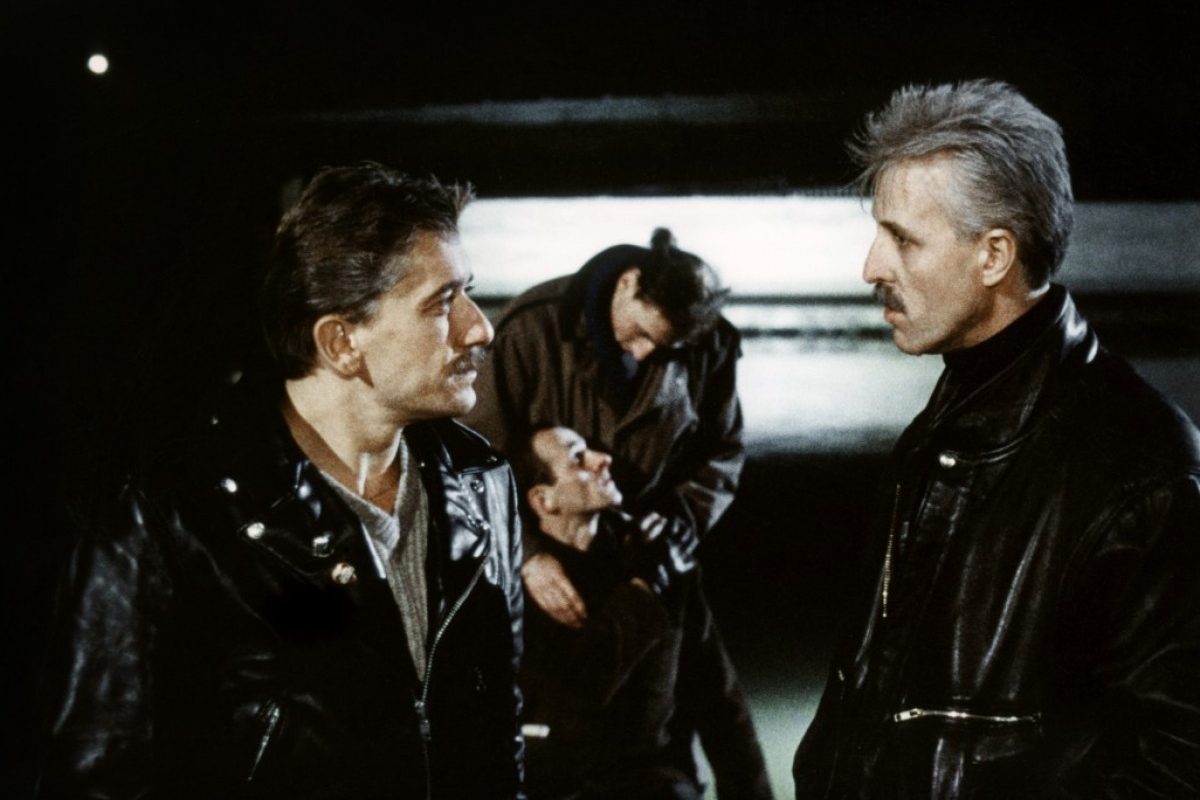
In Once More, passion is opposed to the conjugal, which is abandoned to free love.
No, for me it's not that. I believe that it changes the form of the conjugal: the man-woman marital setting is identical to the man-man conjugal setting. It needs the conjugal element and is surrounded by extramarital elements. I do not see why passion should be excluded from the conjugal. Personally, I lived fifteen years with a woman, and passion never got submerged in the everyday.
It's a rather banal opposition that is still present in French cinema: passion/marital.
I think it's a mistake; when there's no more passion, the marriage dies. I've actually met people who had a mechanical everyday life. Marital life without passion is a mistake.
And passion without the conjugal?
It is pain.
To return to Femmes, Femmes: it's a great film about female friendship, something very rare in cinema, and which makes you think of What Ever Happened to Baby Jane? by Robert Aldrich.
I've been told that more times. I didn't think about it. The origin was that Simone Signoret, on her way out of the cinema, found a homeless man drinking. Her sister was a big bourgeois, Danille Darrieux. She was fascinated by this beggar and started drinking. While Darrieux had a passion for champagne, Signoret was sinking into begging. I wrote that in five days with Noël Simsolo. Darrieux-Signoret was a utopia, so we took Surgère and Saviange and made it so.
What Femmes, Femmes and White Nuits might look like is that there is always a parallel film in your films that moves because it is told, an ebbing away of the past. An invisible film composed only of oral flashbacks. That's why words are part of the mise en scène...
Exactly. I want the viewer to get ownership of my films. What's great about discussions is when you realize that... it's difficult to explain: everyone has seen everything, but not everyone. When you realize of what the audience has seen, there is practically the whole film and even more. A comparison: if I make a tapestry, I am a knitter and I make a motif, but in the eyes of a different one, other motifs will appear that the knitter does not see. When I was a child, there were little dessert plates with a drawing underneath, for instance a shepherd at the foot of a tree. Marked underneath it was: "Look for the wolf" and on the branches you could see the figure of a wolf. Well, in my films I don't put the figure of the wolf, I don't make it, but sometimes people see it.
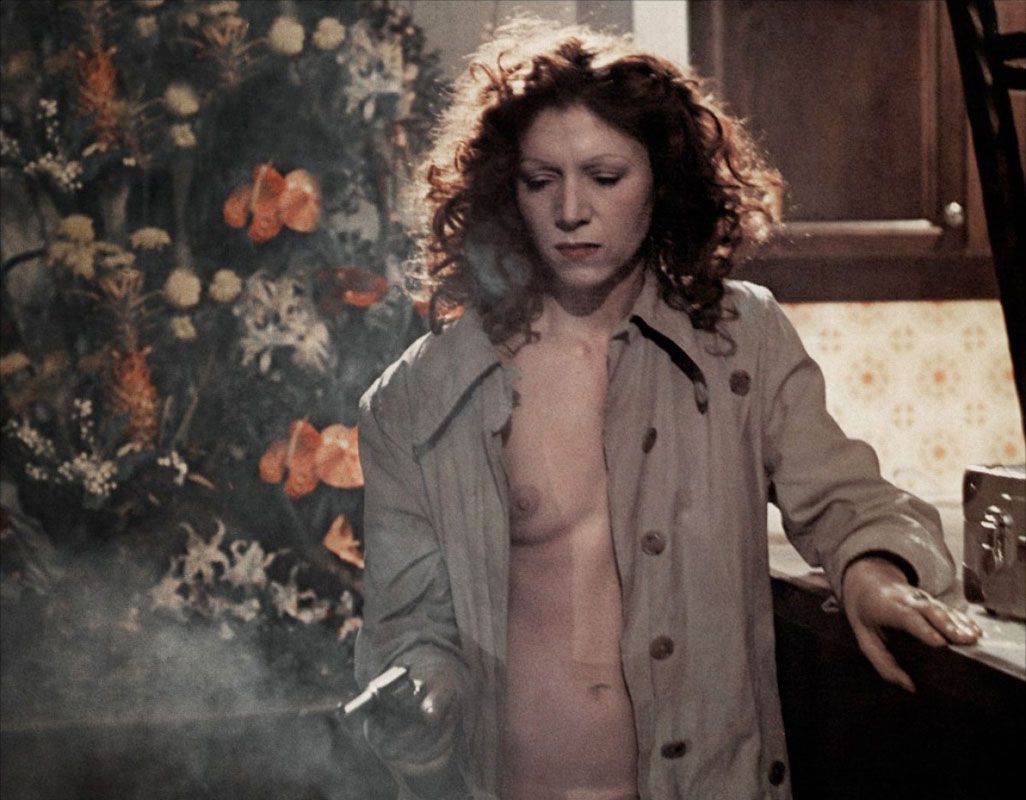
MURIELLE JOUDET is the film critic of Chronic'art and actively participates in the website Hors-Série, within Arrêt sur images.
This article was originally published in the special issue of Caiman Cuadernos de Cine dedicated to the Seville European Film Festival in 2015. Translation by: Natalia Ruiz
http://www.chronicart.com/cinema/paul-vecchiali-les-sentiments-cest-dans-les-jambes/ .



